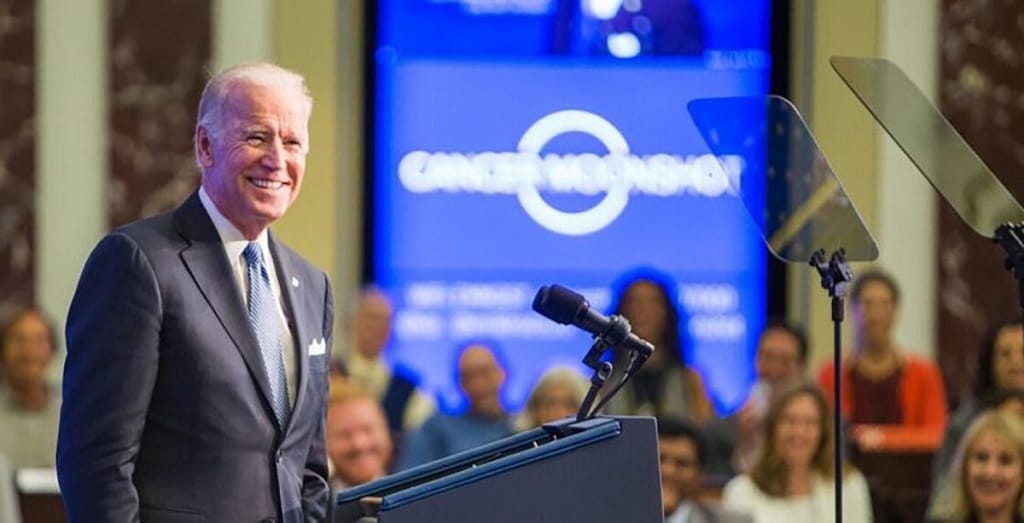Reaction To Biden’s Broadband Plan A Mix Of Praise, Caution And Criticism
April 1, 2021 – In response to President Joe Biden’s new infrastructure “American Jobs Plan,” including $100 billion for broadband projects, many in the broadband industry are applauding the administration’s effort to bridge the digital divide, but with some caution and criticism as well. “We share

April 1, 2021 – In response to President Joe Biden’s new infrastructure “American Jobs Plan,” including $100 billion for broadband projects, many in the broadband industry are applauding the administration’s effort to bridge the digital divide, but with some caution and criticism as well.
“We share the administration’s belief that connectivity for all is a national priority of the highest order,” said USTelecom CEO Jonathan Spalter in a statement. “Let’s remember this: our shared communications networks are backed by $1.8 trillion in private investment that helped the country navigate the depths of the pandemic with reliable and resilient connectivity.
The plan, announced Wednesday, includes a pledge to provide broadband access to all Americans by 2030.
“Today’s broadband marketplace is also ultra-competitive, defined by increasing speeds, declining prices, new entrants and next generation technologies. Congress now should prioritize affordability and accessibility solutions that are fast and smart and incentivize continued private investment to get the job done. We shouldn’t lose this fundamental context as we drive toward our collective connectivity goals.”
John Windhausen, executive director at the advocacy organization Schools, Health and Libraries Broadband (SHLB) Coalition said in a statement that Biden’s plan “recognizes the importance of investing to connect 100 percent of Americans to broadband. It wisely calls for future-proof capacity, which will encompass the high-bandwidth demands of anchor institutions.”
Meanwhile, Christina Mason of the Wireless Internet Service Providers Association said the organization is “greatly encouraged by President Biden’s push to create new jobs and rebuild much of America’s core infrastructure. The President’s focus is right on target.”
Some criticism, including impact on competition
The Internet and Television Association’s (NCTA) response to the new Biden plan was more critical. “The White House has elected to go big on broadband infrastructure, but it risks taking a serious wrong turn in discarding decades of successful policy by suggesting that the government is better suited than private-sector technologists to build and operate the internet,” CEO Michael Powell said.
“Government does have a critical role to play in getting networks to areas that lack service and helping low-income families afford it. However, those targeted, shared goals are not served by suggesting wrongly that the entire network is ailing and that the solution is either to prioritize government-owned networks or micromanage private networks, including the unfounded assertion that the government should be managing prices,” Powell said.
American Enterprise Institute’s Daniel Lyons also expressed caution over the proposal. “The plan accurately frames the multifaceted problem of America’s digital divide. But the devil is in the details — and the few details released so far cast significant doubt on how Biden hopes to achieve this goal,” he said.
Lyons calls out specific aspects of the plan, including future-proofing networks, which he says should not favor fiber over other broadband technology. “Picking winners and losers among network models undermines the intermodal competition that pushes all technologies forward and increases the chances of finding the most efficient way of serving individual pockets of unserved customers,” he said.
He also highlighted the importance of unserved over underserved areas. “Subsidizing a new company to compete directly against an unsubsidized competitor raises different issues than providing service where none currently exists, and it can effectively punish companies that have invested private dollars to connect hard-to-serve populations economically,” Lyons said.
He was also skeptical of possible rate regulation. “As I recently discussed in a piece about the Texas Blackout, political pressure to keep prices low can lead companies to forego investment in resiliency and innovation,” Lyons said.
Biden compared his broadband initiative to the 1936 Rural Electrification Act, which provided loans to companies to get electricity to every unserved area at that time. But Lyons said the comparison to modern broadband fails because it was loans, not grants, that provided electricity to Americans. “This key control is lacking in today’s broadband buildout efforts, which may explain why America faces a broadband gap despite spending countless billions of dollars on buildout subsidies,” he said.
Congressional applause and disappointment
“There is no better way to rebuild our economy for the future than to modernize our badly aging infrastructure, and President Biden’s American Jobs Plan is exactly what our nation needs right now,” said Rep. Frank Pallone, D-N.J., chairman of the Energy and Commerce committee. “The President’s plan aligns with the LIFT America Act, which I introduced earlier this month with all Energy and Commerce Committee Democrats. Our legislation invests in clean and efficient energy, safe drinking water, expanded access to broadband, Brownfield cleanups, and improving our nation’s health care infrastructure,” he said.
But Cathy McMorris Rodgers, R-Wash., ranking Republican member on the Energy and Commerce committee, took issue with the plan. “On broadband, President Biden is poised to waste billions of dollars and hurt private investment in our networks without actually closing the digital divide,” she said. Rather than promoting competition, President Biden’s plan will set rural America back even further and force higher costs on families. Instead, we should be turbocharging our public and private investments and encouraging competition by streamlining permitting processes,” she said.
Rep. Eddie Bernice Johnson, D-Texas, chairwoman of the House Science, Space and Technology committee, commended the Biden plan’s impact on transportation, energy, a cleaner environment, climate change, American manufacturing, research and development, STEM workforce, and equitable engagement for all communities. “The American Jobs Plan is a great start to achieving that goal,” she said.









Member discussion